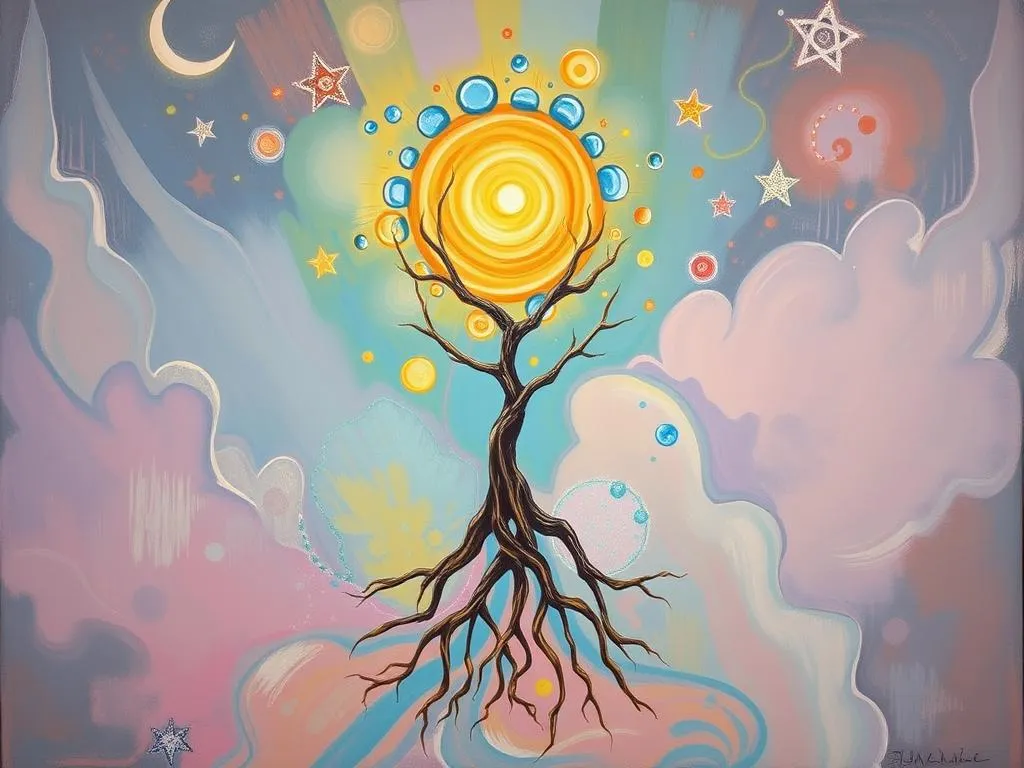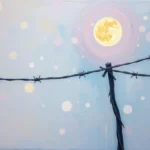
Dreams, those ethereal snippets of our subconscious, often leave us pondering their significance upon waking. Have you ever woken up feeling a heightened sense of emotion, perhaps confusion or even clarity, after a dream that felt so real? It’s fascinating how these nightly narratives can reflect our inner worlds, fears, and desires. The symbolic language of dreams speaks to us in a unique dialect, and understanding it can be a game-changer for personal insight.
In this journey through the hidden meanings of dreams, we’ll explore the intricate layers of symbolism, analyze specific scenarios that might resonate with your experiences, and ultimately guide you toward personal growth. So, grab a cup of tea, settle in, and let’s dive into the fascinating world of dream interpretation.
Unlocking the Symbols: A Journey into the Dreamscape
Every dream is a treasure trove of symbols waiting to be deciphered. These symbols can be deeply personal, yet they often resonate with universal themes that have crossed cultural boundaries for centuries. Let’s explore some common dream symbols and what they might signify.
-
Water: Often seen as a symbol of the emotions, water in dreams can indicate how you’re feeling beneath the surface. A calm lake may represent tranquility, while turbulent waters might suggest emotional turmoil. It’s a reflection of your current state of mind, urging you to confront your feelings.
-
Flying: The sensation of soaring through the air can be exhilarating but also overwhelming. Flying is typically associated with freedom and aspiration, representing a desire to rise above challenges or escape from constraints. However, if you struggle to maintain altitude, it may indicate feelings of insecurity or fear of failure.
-
Teeth Falling Out: This common nightmare often evokes a strong reaction. In many cultures, losing teeth represents a fear of loss or powerlessness. It could signify anxieties about aging, communication issues, or a sense of helplessness in a situation where you feel you lack control.
-
Being Chased: A classic scenario in dreams, being pursued often reflects feelings of anxiety or fear in waking life. The pursuer may represent an aspect of yourself you’re trying to avoid, such as unresolved issues or responsibilities. Your reaction to this scenario can reveal a lot about how you handle stress.
-
Nudity: Dreaming of being naked in public can evoke feelings of vulnerability or exposure. It’s often linked to fears of judgment or self-consciousness. This type of dream suggests a need to embrace your true self or confront aspects of your identity that you may be hiding from others.
Understanding these symbols is the first step towards unlocking the deeper meanings behind your dreams. They serve as mirrors reflecting your inner thoughts and feelings, prompting you to explore what is truly happening in your life.
Reflections of Reality: Dream Scenarios to Ponder
Sometimes, specific dream scenarios resonate with us more than others. They can echo our daily experiences or feelings, providing a clearer lens through which to view our thoughts and emotions. Let’s explore a few common dream scenarios and uncover potential interpretations.
1. The Exam You Didn’t Study For
Imagine finding yourself in a classroom, staring at a test paper filled with questions you can’t answer. This scenario is often linked to fear of failure or inadequacy. It could reflect stress surrounding work or personal expectations. Think about areas in your life where you feel unprepared or overwhelmed, and consider ways to address these feelings.
2. Driving an Out-of-Control Vehicle
Picture yourself behind the wheel of a car that won’t stop, careening down a road with no brakes. This harrowing experience can symbolize a feeling of losing control in your life. It may relate to situations where you feel powerless or caught in a whirlwind of events. Reflect on what aspects of your life you can take the reins of to regain a sense of direction.
3. Being Trapped in an Elevator
In this scenario, you find yourself stuck in a small, confined space, feeling the walls close in around you. This dream often represents feelings of entrapment or stagnation. It could signify that you’re in a situation that feels limiting, whether in your career, relationships, or personal growth. Consider what steps you can take to break free from these constraints.
4. Revisiting Your Childhood Home
Dreaming of your childhood home can evoke a mix of nostalgia and anxiety. This scenario often symbolizes a desire to reconnect with your roots or unresolved issues from your past. It invites you to explore how your upbringing has shaped your current beliefs and behaviors. Reflecting on these experiences can guide you toward healing and acceptance.
5. Running Late for an Important Event
Finding yourself in a frantic rush, desperately trying to make it to an important meeting or event, can be a common source of stress in dreams. This scenario often reflects anxieties about time management or the fear of missing opportunities. It’s a gentle reminder to assess your priorities and perhaps slow down to focus on what truly matters.
These scenarios not only highlight the emotional undertones of our subconscious but also provide insights into our waking lives. By examining these situations, you can better understand the underlying issues that may be affecting you.
Navigating the Inner Landscape: Growth Through Dreams
Dreams are not just random images that flit through our minds as we sleep; they can serve as powerful tools for personal growth. Engaging with your dreams can lead to profound insights and a deeper understanding of yourself. Here are some practical steps to harness the wisdom of your dreams for personal development.
1. Keep a Dream Journal
Start recording your dreams as soon as you wake up. Include as many details as possible, from emotions to symbols. Over time, patterns will emerge that can help you identify recurring themes in your subconscious. This practice not only enhances your memory but also fosters self-awareness.
2. Reflect on Emotions
After jotting down your dreams, take a moment to reflect on the emotions that accompanied them. Ask yourself what feelings stood out and how they relate to your waking life. Understanding your emotional landscape can lead to greater clarity and healing.
3. Set Intentions Before Sleep
Before going to bed, set an intention to explore a specific issue or question through your dreams. This practice can guide your subconscious mind to work on that topic while you sleep. You may wake up with fresh insights or solutions that you hadn’t considered before.
4. Engage in Creative Expression
Use your dreams as inspiration for creative outlets. Whether through writing, painting, or music, expressing the themes and emotions of your dreams can be cathartic and enlightening. Creative expression allows you to explore your inner world in a tangible way, leading to personal revelations.
5. Seek Guidance if Needed
If certain dreams leave you feeling particularly unsettled or confused, consider seeking guidance from a therapist or dream analyst. Professional insights can provide valuable perspectives and help you navigate your emotional landscape more effectively.
Dreams are profound teachers, offering lessons that can lead to significant personal growth. By exploring the symbolism and the emotions they evoke, you can unlock layers of understanding that can transform your waking life.
As we conclude this exploration of dreams, remember that your subconscious is a vast, rich landscape. The symbols and scenarios you encounter are not merely fleeting images; they are portals to deeper understanding. Embrace your dreams as guides, and take the time to reflect on their meanings. Through this journey, you may discover hidden strengths, confront unresolved fears, and ultimately cultivate a life that resonates with authenticity and purpose.
In the end, the most powerful reflection is this: Your dreams are not just stories—they are the whispers of your soul. Listen closely, and let them guide you toward a more profound understanding of yourself and your journey.







